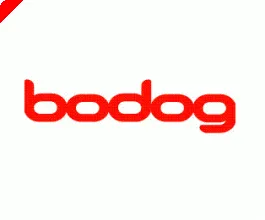Bodog Foils Legal Ploy in Latest Ruling

Bodog was the winner in the latest ruling in a patent-infringement lawsuit that has developed more twists and turns than San Francisco's famed Lombard Street. On August 31, 1st Technology Inc. filed an Ex-Parte Application for Order Allowing Examination of Judgment Debtor, which would have compelled Bodog owner Calvin Ayre to appear at their US attorney's offices. Knowing anything about the current legal climate for principals of online sports betting sites might have lead them to believe that Calvin Ayre would be hard pressed to make a scheduled appearance in the US. If the court sided with 1st Technology and Ayre failed to show, they were ready with a motion for contempt.
The court ruled in favor of Bodog, stating that the Nevada Revised Statute governing the examination of a judgment debtor is not enforceable for defendants residing outside of the county, let alone the country. The ruling went on to say that the statute also does not authorize the Court to specify that the debtor corporation produce a specific person as its representative for examination. The judge also threw 1st Technology's contempt motion.
In his personal blog, Ayre said that 1st Technology was "attempting to stretch the law in a very transparent and amateurish attempt to embarrass me into paying them extortion money. The judge agreed that both I and Bodog SA are not residents of Nevada and so therefore not subject to discovery. The judge also agreed that I am not personally in any contempt of court. Playing fast and loose with the rules is starting to catch up with these patent trolls, and the very legal system they are trying to manipulate for their own financial gain, is finally turning on them."
The next ruling in queue is the all-important determination as to whether domain names are assets subject to seizure, and that matter is schuduled to be heard in Washington State. As part of the August default judgement against Bodog, 1st Technology was awarded Bodog's domain names, forcing Bodog to operate under new URLs (Uniform Resource Locators are the 'text' version of Internet addresses). Bodog's attorney argues that domain names should not be transferred, because using them would be an infringment of trademarks. Since the courts do not have the power to seize trademarks, "it likewise should not have the power to seize or transfer domain names which contain those trademarks." Ayre commented, "This is a groundbreaking case in the muddy waters of Internet law, and we are confident that we have many aspects in our favor to potentially solidify some clarity on this issue and our domains returned to us."












